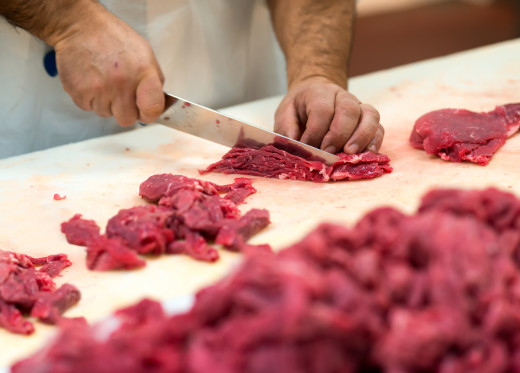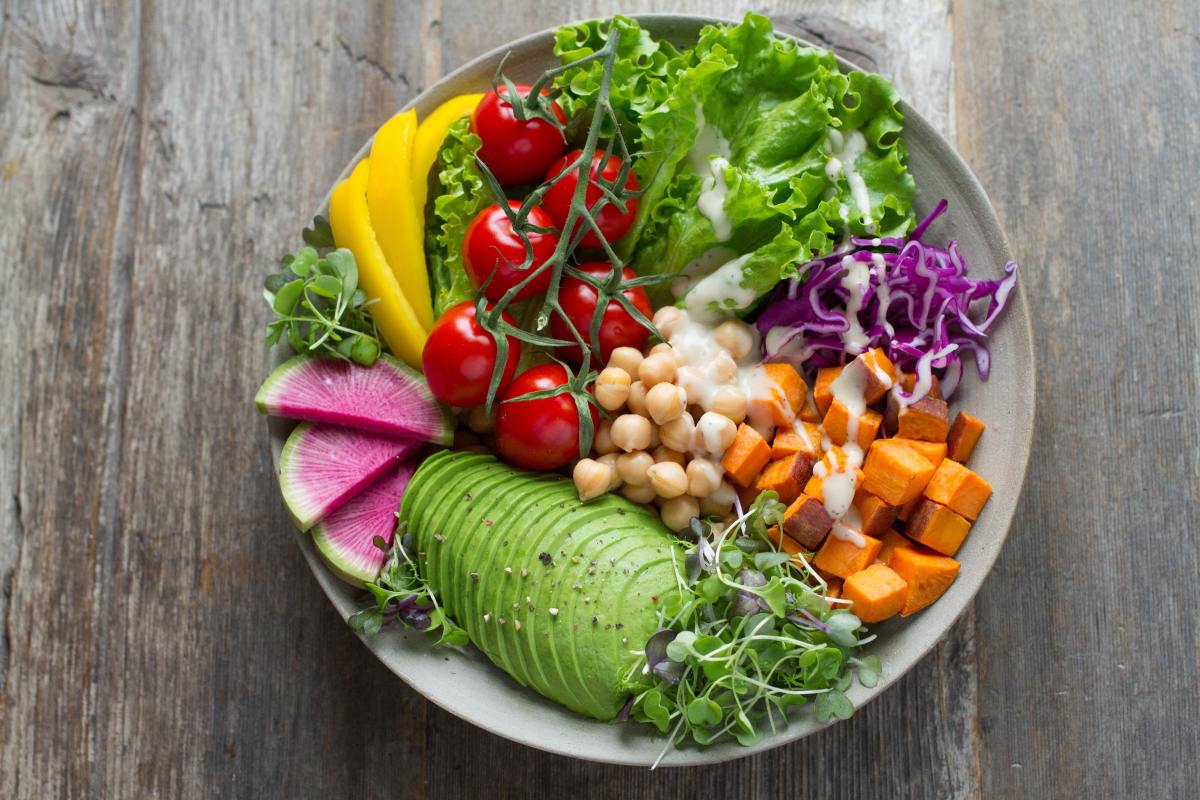Opposing View-In Favor of Eating Meat

Opposing Views (Eating Meat)
As mentioned in another article, I did not find a lot of sources that were in favor of eating meat or refuted the arguments of vegetarians. But I did find some individual views on this. But in this section, I will discuss some of the views in favor of eating meat or against vegetarianism.
Jarvis (1997) said, “Vegetarianism is riddled with delusional thinking from which even scientists and medical professionals are not immune.” He later goes on to say, “The neologism anti-carnivorist better characterizes the majority of those who call themselves vegetarians.” He couldn’t have said it any better.
Goldberg (2001) says:
“Few People are making the positive case for eating meat. No intelligent discussion of vegetarianism can ignore this simple fact: Cows taste good. As one friend puts it, if God didn’t want us to eat cows, He wouldn’t have made them out of steak. This is not a trivial point. Cows, like other livestock, are in many ways man-made creatures designed over thousands of years of husbandry to provide a ready supply of meat. If vegetarians had their way and everyone “converted” (their word) to a meatless lifestyle tomorrow, it wouldn’t be like Muppets walking home after a long day at the office; there is no “natural” ecosystem for the millions of unemployed cows and chickens to return to.
“More to the point, humans have a taste for meat for a reason: We were meant to eat it. Our teeth, for example, are the Swiss Army knives of the animal kingdom, divided in equal parts for eating T-bones and the vegetable accompaniment of your choice. Meat provides the necessary proteins; vegans need to take supplements to get them. A British fruitarian couple goes on trial this summer because their baby died from the malnutrition that comes from eating the diet of a spider monkey.”
Stubbs (2001) says, “I think its ridiculous to think one person being a vegetarian is going to stop the killing and bad treatment of animals. I think people who are vegan are even more ridiculous, because they’re not getting the right proteins and vitamins they need.”
Vegetarianism may be an excuse for anorexia. Meister (1997) states that “Health professionals, parents and others who deal with young people should be aware that some teenage and college-age women who describe themselves as vegetarians may actually be practicing unhealthful forms of weight control or suffering from an eating disorder. These young women are at risk for serious health problems.”
Martinez (2001) argues “As long as we keep humanizing food animals, the likelihood is we’ll continue to worry about how they’re treated and eat them in diminishing amounts.”
The National Cattlemen’s Beef Association said, “…the more foods eliminated from the diet, the greater risk for nutrient deficiencies.” (Vegetarian Babies Boom in U.S., 2001)
Ginny Diehl, director of food services in the Franklin Regional School District in Pittsburgh, says thousands of food service directors across the nation are evaluating NBMP. Diehl balks at what she sees as the “trendiness” of teens-girls in particular- who become vegetarian while turning their noses up at alternate sources of protein, vitamins and minerals. “Iceberg lettuce and carrots won’t do it,” says Diehl, “and you’ll find most kids won’t eat beans or tofu.” Like many health professionals, Diehl says a nutritionally sound vegetarian diet can be safe for teens if it doesn’t eliminate essentials. (O’Sullivan, 1995)
Regarding animal rights, Allen (20010 says: “Seriously, the “animal rights” movement is a conceptual absurdity: how can animals have “rights” -as humans do- without corresponding responsibilities? Do we explain to the cat that it mustn’t hunt mice because of mouse nerve systems? Shall we explain to the fish that it mustn’t eat worms that land naturally in the water, because someone has detected “endorphins” in them?”
Many people use the Bible to argue that eating meat is okay. Jarvis (1997) used the following scripture:
- Every creature that lives and moves shall be food for you. (Genesis 9:3)
- For the Kingdom of God is not food and drink but righteousness and peace. (Romans 14:17)
- Let no one pass judgement on you in questions of food and drink. (Colossians 2:16)
Robie (2001) says, “And you can’t very well quote the Bible as a reliable argument for vegetarianism when you know that animal sacrifice and carnivorous feasts appear on the pages you didn’t quote.”
In my opinion, I believe that many vegetarians have the following fallacies: Many arguments have irrelevant, inadequate evidence, erroneous (invalid) reasoning, improper expressions, false cause, and appeal to pity (all the animals that are being abused).
Conclusion
I learned a lot as I researched and wrote this series. I now have a better understanding of the issues of vegetarianism and the organizations that support it. I believe that there are fallacies in their thinking and arguments. I do not agree with the tactics used by vegetarian groups. Targeting children as part of an organization’s tactics is desperate.
Personally, I am an omnivore. One belief I have about animals being used for food is brought up in the movie Avatar. The blue beings hunt other creatures but are compassionate and thank them for giving their lives to nourish the indigenous people that are much like Native Americans. But I don’t really have anything against anyone wanting to be a vegetarian if they so choose. I have decided that I can cut back on the meat so that I may use moderation. Too much meat can give people high blood pressure and heart problems at an older age.
Bibliography
Allen, E. (2001, June 1) Activists, ranchers clash over role of God, religion in eating meat. San Antonio Express-News, pp.1-2.
Goldberg, J. (2001, April 30) Well Done. National Review, Vol.53 Issue 8, p.29-30.
Jarvis, W. (1997) Why I am Not a Vegetarian. Health Priorities, Vol.9 Number 2, p.1-15.
Martinez, A. (2001, August 20) PETA’s got a bone to pick with carnivores. Los Angeles Times, p.1-2.
Meister, K. (1997, July) Vegetarianism. Prepared for the American Council on Science and Health.
O’Sullivan, C. (1995, March 23) Teen vegetarians have a beef with meat. Pittsburgh Post-Gazette, p.A8.
Robie, M. (2001, July 1) Reviews: Vegetarian revolution. Vegetarian Journal, Vol.20 N.4; p.32.
Stubbs, P. (2001, August 11). What they say about…vegetarianism. The Times, p.71.
Vegetarian babies boom in U.S. (2001, August 1) Environmental News Network, p.1-2.
This content is accurate and true to the best of the author’s knowledge and is not meant to substitute for formal and individualized advice from a qualified professional.
© 2020 Mark Richardson








